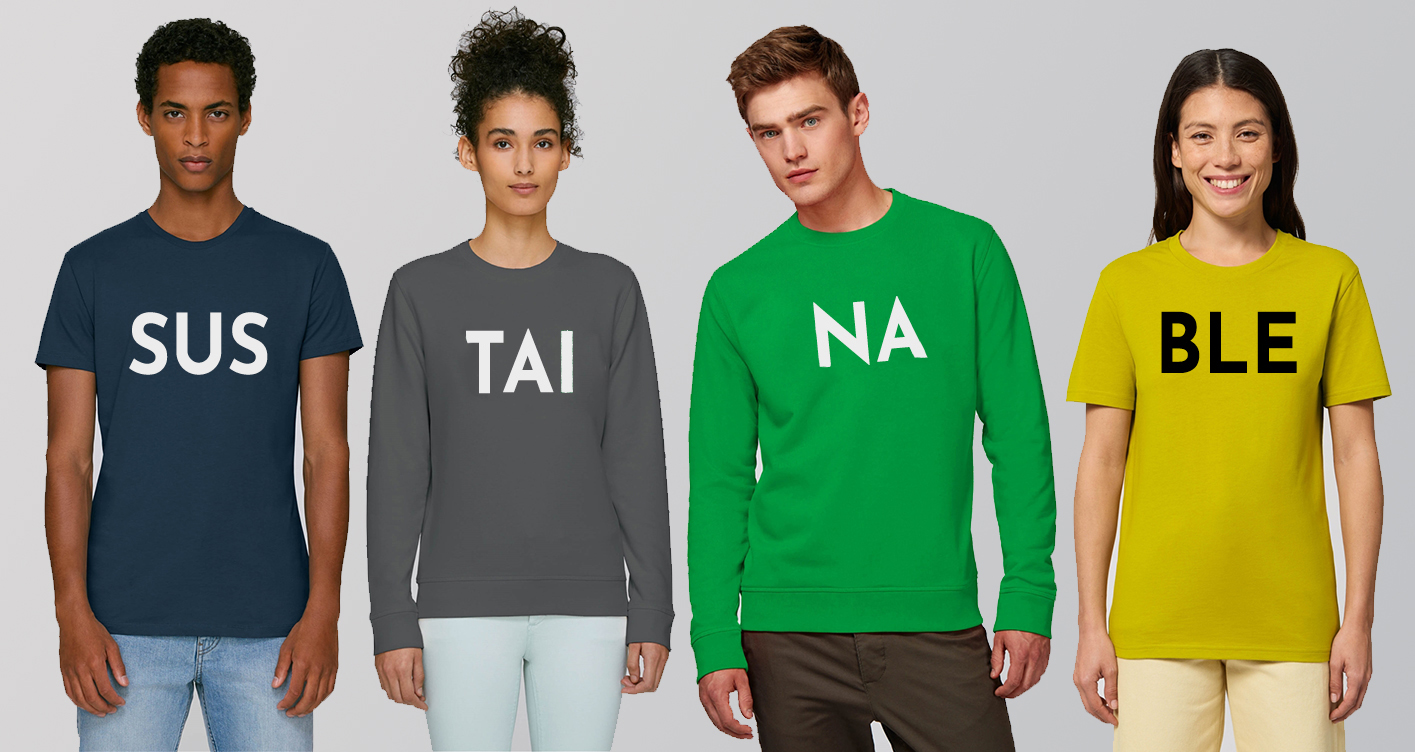
As you may have seen on our Social Media, we have introduced a fantastic range of Sustainable Clothing so you can have a uniform that doesn't cost the earth. In this article, we look at some of the environmental brands we now offer and also some of the eco fabrics you can now use with our manufacturing service.
Environmental awareness is growing. We analyse every aspect of our consumption, like never before. From the food we eat to how we travel, increasing our efficiency and decreasing our footprint is a necessity.
Clothing is just the next step!
Textiles and clothing are a significant contributor to global emissions. A recent EU report stated that between 2-10% of Europe's environmental damage came from these industries. Fast fashion and disposable trends emphasise mass production and cheap costs with no regard for how harmful both on a climatic and social level.
Workwear and uniforms are just one part of this industry, but it's time we all face up to this responsibility.
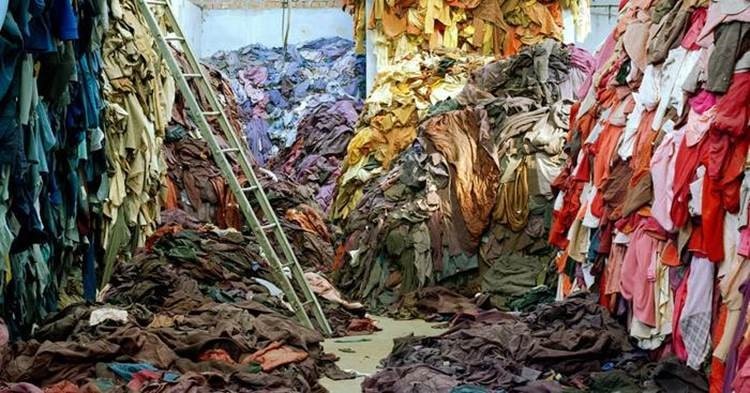
Our industry is at the start of a long and complex transition period towards sustainability. With increased societal awareness comes increased scrutiny.
Environmentally sustainable clothing options are more popular now than ever. Utilising your uniform as a showcase for your environmental and social responsibility is an effective method of standing out from the crowd.
We want to let you know about the organic, recycled and ethical products we have available to buy from our website right now from the world's best sustainable clothing brands. And we're going to dive deep into the manufacturing options available and highlight the innovative eco-fabrics that can now be utilised for bespoke garments.
Let's start with sustainability.
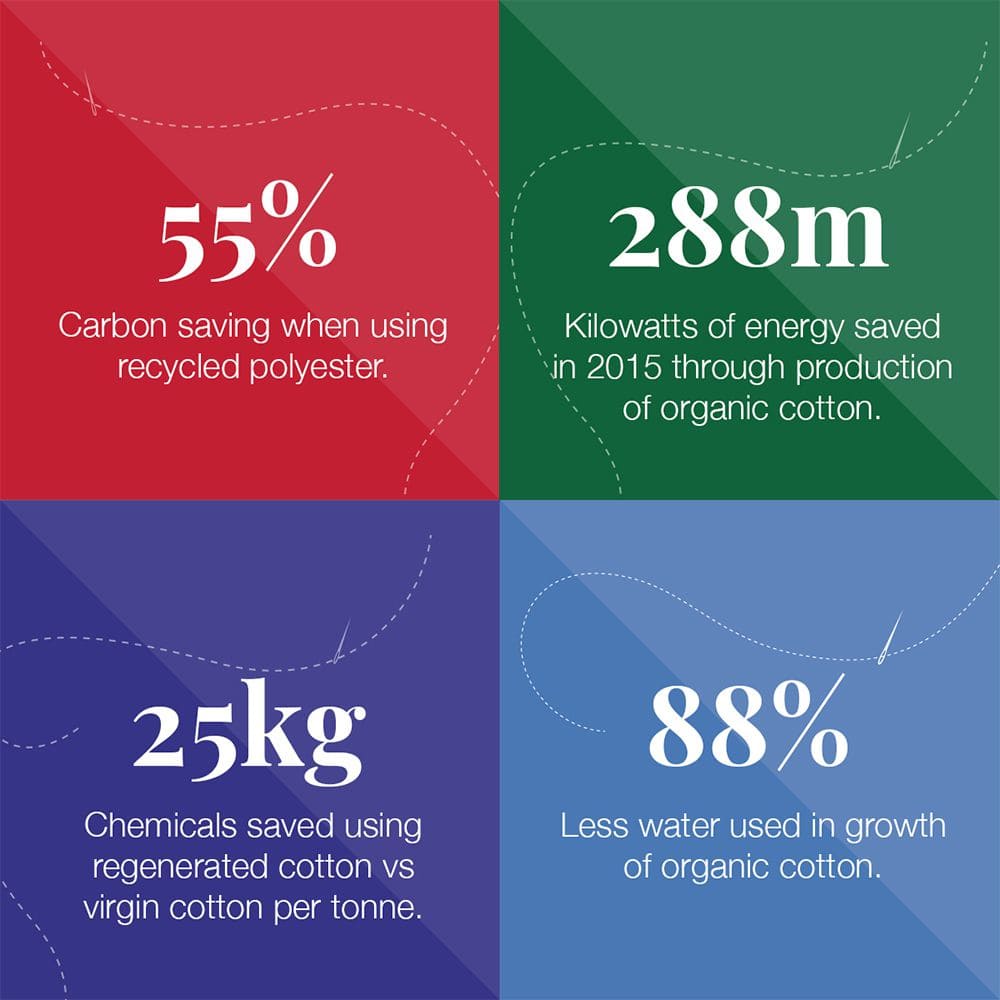
Every year over 10,000 are lost due to the pesticides in the cotton farming industry. The chemical interference and human cost are undeniable.
On top of that, the industry is doing irreversible damage to the environment with every 'fast fashion' t-shirt. A plain cotton t-shirt can require up to 2,900 litres of water to produce. The majority of that comes in the dyeing and weaving process, but it is a truly staggering number.
As you can see above, purchasing organic or recycled garments saves an enormous amount of energy and resources.
But there is an additional benefit to organic cotton clothing; how it feels. The revised manufacturing process and the lack of chemical interference makes the texture far softer and safer for the skin. So purchasing an eco-t-shirt, simply put, you're getting a better one too.
You'll find our new environmentally friendly collection on the Sustainable Page. But we want to provide a little insight into each of the main eco brands and their contribution to the environmentally friendly clothing market.
First up its Stanley & Stella.
Stanley & Stella are pioneers in the casualwear industry. Since their founding, they have passionately advocated the need for change in textiles and clothing manufacturing. From the materials they use, namely organic cotton and recycled polyester, to their implementation of the Fair Wear Foundation's practices, the environmental and ethical credentials are without equal in the workwear industry. They are one of, if not the best ethical clothing brands in the UK.
Their ranges of t-shirts, polos, jumpers and outwear are excellent. As previously mentioned, one often forgotten benefit of organic cotton is its texture and feel on the skin. We have combed through their entire offering and selected the best from the best. And don't worry these garments can be embroidered or screen printed like any traditionally composed and manufactured clothing.
If you wish to check out our claims, then read Stanley & Stella's Social Report 2018.
Next up its Continental. These guys are style pioneers creating the "Continental Fit" in Europe and have always utilised responsible manufacturing processes.
The four factions of their clothing are Continental, Earth Positive, Salvage and Fair Share.
We have analysed each and put the best of each into our new Sustainable Uniform section.
Their Earth Positive range is registered as "Climate Neutral" as they have taken their emission levels for this sub-brand are down to pre-industrialised levels. All of Continental's ranges have at least 7kg of emissions less than traditionally manufactured clothing making them one of the most affordable ethical clothing brands. From tees to aprons, our range of Continental clothing keeps you stylish and sustainable in equal measure.
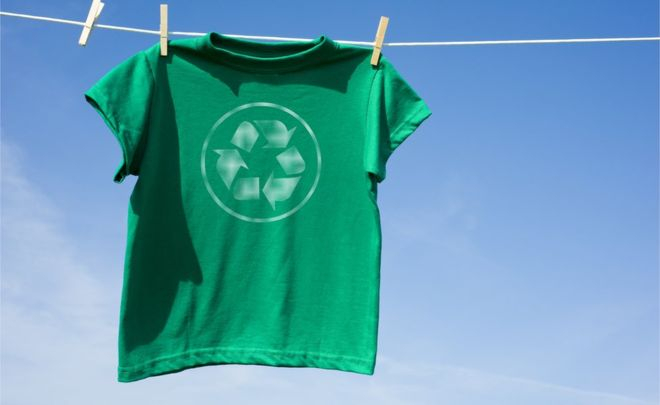
We also have a vast collection of bags, totes, gymsacs and bottle bags. Little branding touches to your team’s workwear can make such a difference, so there’s no reason to not go sustainable with these too.
Our leading brand in this section is the fantastic Westford Mill.
Westford Mill champion sustainability their numerous certifications for their sourcing process, including Fairtrade, Organic Cotton Standard and EarthAware are a testament to it.
An achievement we find impressive is that they are a member of the 1% for the Planet organisation. And so this means they give 1% of a business’s revenue to environmental charities and causes.
Why not support the environment and your brand by taking advantage of this collection of sustainable bags all perfect for screen printing.
Now we want to highlight Ecologie by AWDIS. A stylish range of t-shirts and sweatshirts you can seamlessly integrate into any uniform wardrobe.
What sets Ecologie apart is their application of regenerated cotton yarn on their entire range. They use the offcuts, or clips, of traditional cotton which is ordinarily destined for landfill and then blended with polyester to create a unique, sustainable fabric. The benefits are listed below.
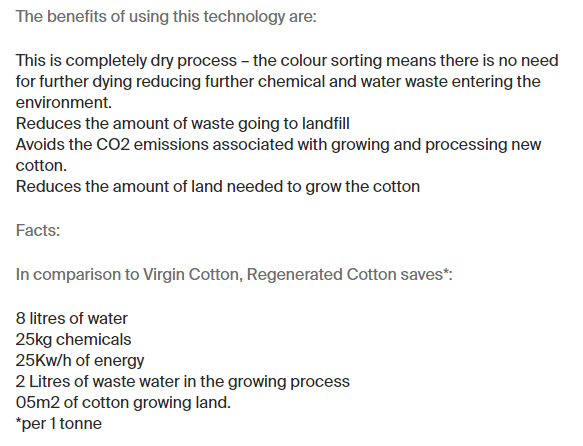
These are just a few of the environmentally friendly clothing brands we selected for our sustainable uniform range. If you want to quickly see which product contains which fabrics or which brand supports what causes then check out our icon glossary below:
![]()
One of Tibard’s greatest strength is our onshore and offshore manufacturing capabilities. Therefore, it would be wrong of us not to include our sustainable fabric manufacturing options. We’re able to produce bespoke items for your business with the all-important foundation of sustainability embedded in the fabric.
Our first fabric spotlight will be on the innovative TencelTM. Developed by fabric pioneers Lenzing, the Tencel material is a lyocell or modal fabric made from sustainable wood sources. They manufacture it using a closed-loop production process which means it is far more energy-efficient and less environmentally impactful. Furthermore, Lenzing only uses renewable sources of energy in making Tencel. But you do not compromise on the versatility or quality of this fabric.
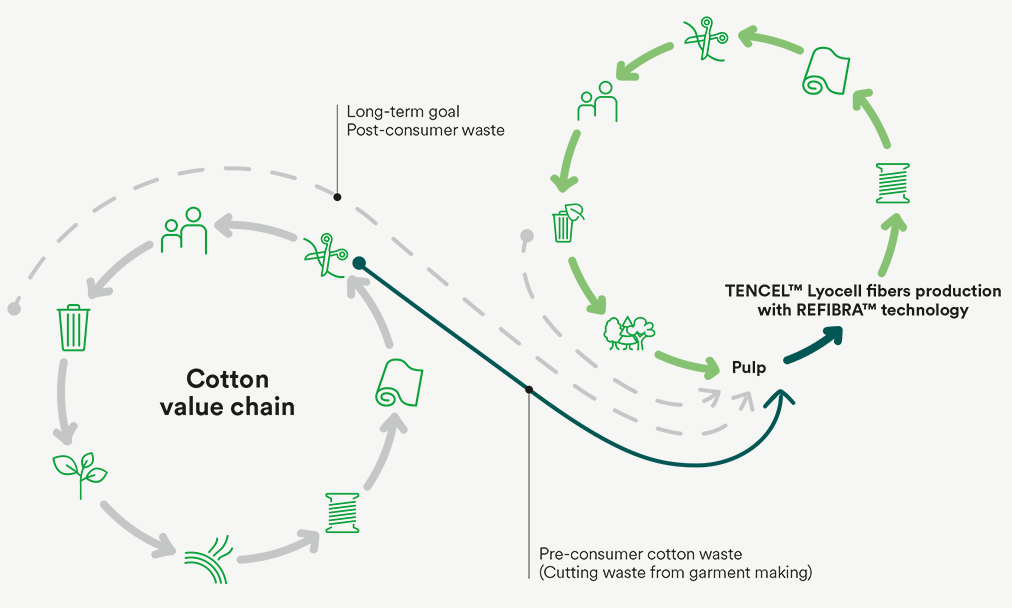
Compared to traditional cotton, Tencel shrank and wrinkled less and was significantly more breathable and in some cases more durable too. Its advantage is how comfortable and lightweight it is. However, all these benefits come at a price, and it more expensive than even organic cotton. But it is an excellent option for those looking to manufacture their uniform and want to keep their staff cool, collected and sustainable.
Our next fabric spotlight is on Repreve. Made by Unifi, Repreve is their flagship fabric for its sustainable range. In short, it is a polyester alternative but made from recycled materials, most notably, plastic bottles. So far, Unifi has utilised over 17 billion plastic bottles in their manufacturing process to create this dynamic and carbon positive material. And just in case you think this is simply marketing fluff than think again. Repreve is certified Gold by the Global Recycling Standard with between 95-100% certified recycled content, the highest possible accreditation.
And if you need more convincing, check out this video from them below.
So what can Repreve be used for? A polyester alternative, it's used in both 100% polyester clothing and any poly-cotton fabrics. The benefits are similar to traditionally manufactured polyester; however, Repreve has superior wicking, adaptive cooling and water resistance. Aprons, chef's clothing, trousers and tops can all be made using Repreve. If you want to help develop a more proactive recycling industry, then Repreve might be right for you.
We have so far looked at industry-leading technology creating dynamic fabrics made from unlikely places. Our next material is quite the opposite, Organic Cotton. Rather than harnessing industrialisation, organic agriculture instead utilises a different system. It focuses on resource efficiency, environmentalism and community development. Check out the difference between the two methods below, content from About Organic Cotton:
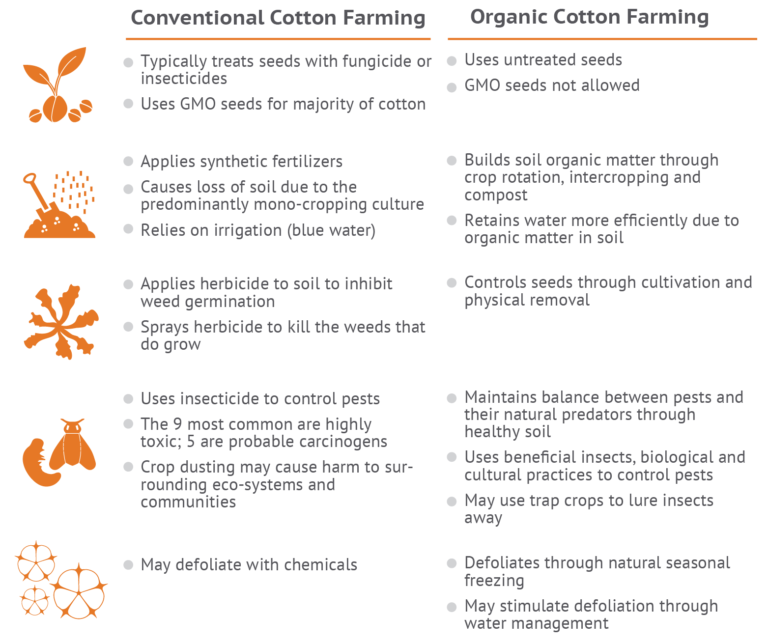
As well as this more technical look at the farming processes involved we have also found for you a great little guide from the Soil Association which shows the overall benefits of Organic Cotton as a sustainable option for you:
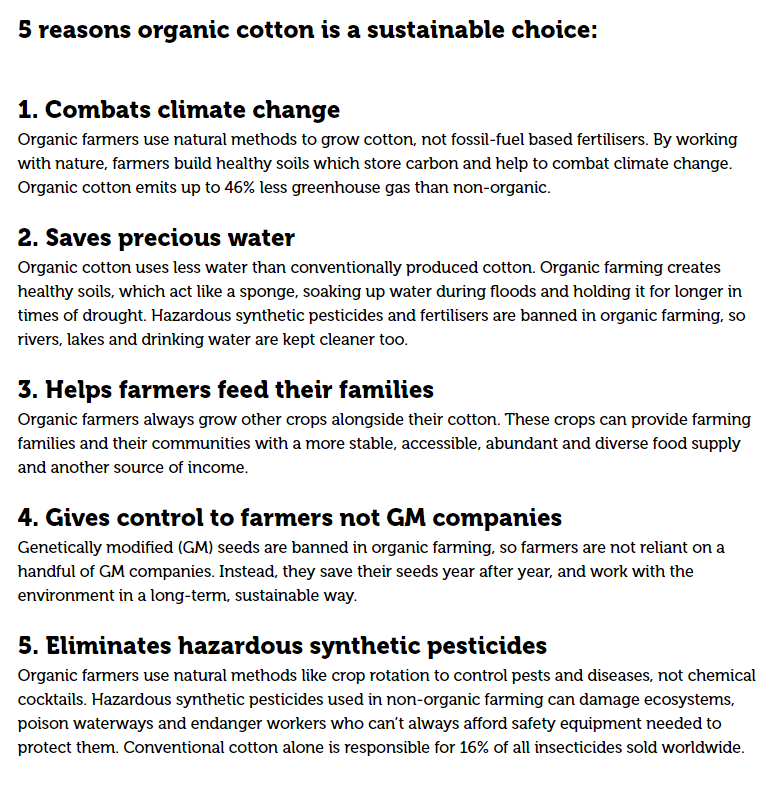
So where can be organic cotton be applied? Simple, everywhere, traditional cotton is used! From chef jackets to aprons and from hoodies to shirts, we expect over the next few years, the number of organic cotton clothing products is going to increase massively. As we have stated above, we have several excellent organic options already available for you to buy today. However, if you want to take advantage of our Contract Manufacturing service for your workwear, we can replace the traditional cotton with organic to make a custom, sustainable uniform.
And that is why we have highlighted these key environmental fabrics, to illustrate just the variety of sustainable options out there for you to use with our manufacturing capabilities. There are more and more choice becoming available and we will keep you all up to date on what works for your particular needs. And the strength of the Tencel, Repreve and Organic Cotton options are they can be used on their own or part of a blend. Indeed, you can use the polyester Tencel with Organic Cotton to create a 100% sustainable fabric. Or you can use one with traditional materials the choice is greater than you think. It really is up to you how sustainable you want to go with your textiles and our manufacturing service.
Now, no doubt you have been wondering throughout this article what the price of all these choices are, and the natural assumption is you will have to pay a premium to go sustainable. Well, there’s no avoiding it, you will have to pay extra for environmentally responsible clothing, but it is not as great you may expect. For example, we recently costed for a customer several value-driven chef jackets and trousers utilising the Repreve fabric with traditional cotton. The total estimate came in at approximately £1 extra per garment than the non-sustainable alternative.
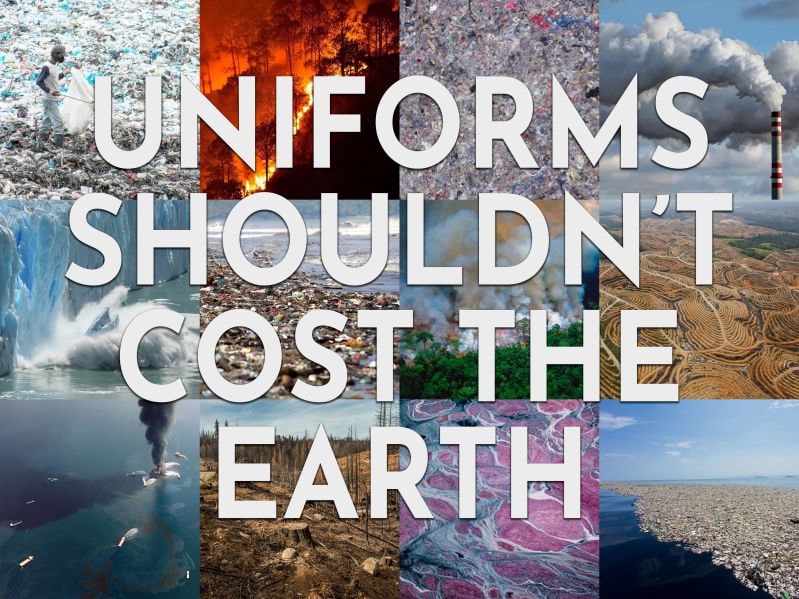
It is a similar story with the sustainable products we sell online; they are more expensive but not by much. For instance, our cheapest sustainable t-shirt is £5.95 ex VAT, whereas our most inexpensive traditional tee is only £2.95. Now, this seems a real difference, but it is essential to remember that the quality of an organic cotton tee is superior to that of a simple cotton one. So you do pay a slight premium, but overall you not only do your part for the environment but also receive better quality, so it is well worth that little bit extra.
So, as you have learned throughout this article there are a huge number of options now available for you to create a sustainable uniform. Climate change is a real problem, but if we can all play our own small roles in reducing our impact on the planet then we can secure of future together!